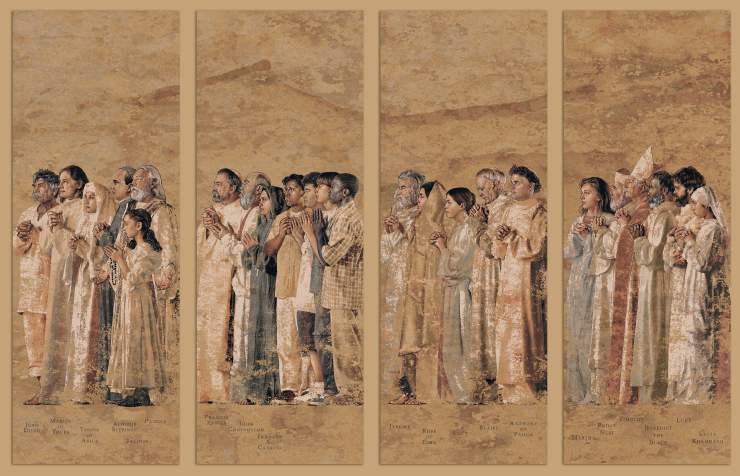One of the areas that has, does, and will always pique my interest highly is where humanity emerges and is even highlighted in sports. Sports can easily be written off as frivolous, meaningless, or worse, and certainly has its dark side of revenue and profit obsession, objectifying people as commodities for entertainment, and struggling to use its heft to properly address issues inflamed by its own players, such as domestic violence. However, it can also bring to light the good within us.
Last night, Cubs player Albert Almora hit a foul ball, a screaming line drive straight down the foul line toward the seats. It struck a young girl, and she was immediately rushed out of her seat to emergency aid. No replay was shown or details shared, but the cameras and commentators focused on Almora, because he immediately knew what happened and slunk to his knees, head in hands, terrified for the accident he had just inadvertently caused. His teammate came from the on-deck circle to console him; another teammate left second base to do the same; his manager came from the dugout to reassure him that it was an accident over which he didn't have control. Even his opponents stopped to kneel down and gather themselves in thought (or maybe even prayer) as the stadium went quite quiet and activity slowed for a few minutes.
MLB mandated expanded netting after similar accidents, and this may only catalyze increased mandates to further protect fans. These things are accidents, and stuff like that can happen at many of favorite leisure events. The neat moments here were the level of concern and humanity shown spontaneously by athletes best known for compartmentalizing things and being single-minded on competition. This was perhaps best crystallized when, half an inning later, Almora stopped on his way back to the dugout to stop with the security guard near where the accident occurred. He listened to her talk about what happened, fell into her embrace, and could be seen crying. I obviously pray this little girl will recover and have no lasting effects, other than the relationship Almora wishes to establish with her and her family going forward.
It mattered so much how Almora's teammates reacted in the moment tonight. Good people showed why they are good people.— Dan Bernstein (@dan_bernstein) May 30, 2019
A really tough scene at Minute Maid Park over the last inning. Albert Almora Jr. of the Cubs hit a hard line-drive foul into the stands that hit a young child. Almora Jr. was extremely shaken up and after the next half inning, he was consoled by MMP security personnel. pic.twitter.com/2hfHX4hvNd— SportsTalk 790 (@SportsTalk790) May 30, 2019
"I'm speechless, at a loss for words. Being a father of two boys." Albert Almora speaks after scary foul ball incident: https://t.co/wIl0a3TxAr pic.twitter.com/ONxuzw85jA— NBC Sports Chicago (@NBCSChicago) May 30, 2019
Almora: “As soon as I hit it the first person I locked eyes on was her... just praying. I’m speechless ... being a father with two boys. ...God willing I’ll be able to have a relationship with that family the rest of my life.”— Gordon Wittenmyer (@GDubCub) May 30, 2019
“Hopefully I’ll have a relationship with the (girl’s) family for the rest of my life.” - Almora— Mark Gonzales (@MDGonzales) May 30, 2019
* * *
Now, just a few links today:
Social media and technology give us many ways to communicate with each other, but they also create many new avenues by which we can ignore each other. An interesting application of these new technologies is the increase in telecommuting or remote work. Intuitively, I wondered if remote workers become siloed and disconnected from their work community or team. Yet, here, this author cites studies that claim just the opposite -- remote workers have to communicate more and better to do their jobs, and the adjustment in environment working from home actually created a preferred productivity setting for many people. Interesting stuff to think about for not just productivity, but welfare and stress management?
Pope Francis' recent comments on the potential women's diaconate indicated that no change is on the near horizon, though the slow wheels of exploration will continue to turn. Meanwhile, this author argues that the Church shouldn't get too fixated on that element of women leadership alone. Citing her own role as a diocesan chancellor among her arguments, the author encourages a wider lens toward women taking on greater leadership in the Church, wanting to continue the pursuit of the diaconate while also emphasizing other areas where women can and should have a greater presence in leading our Church.











